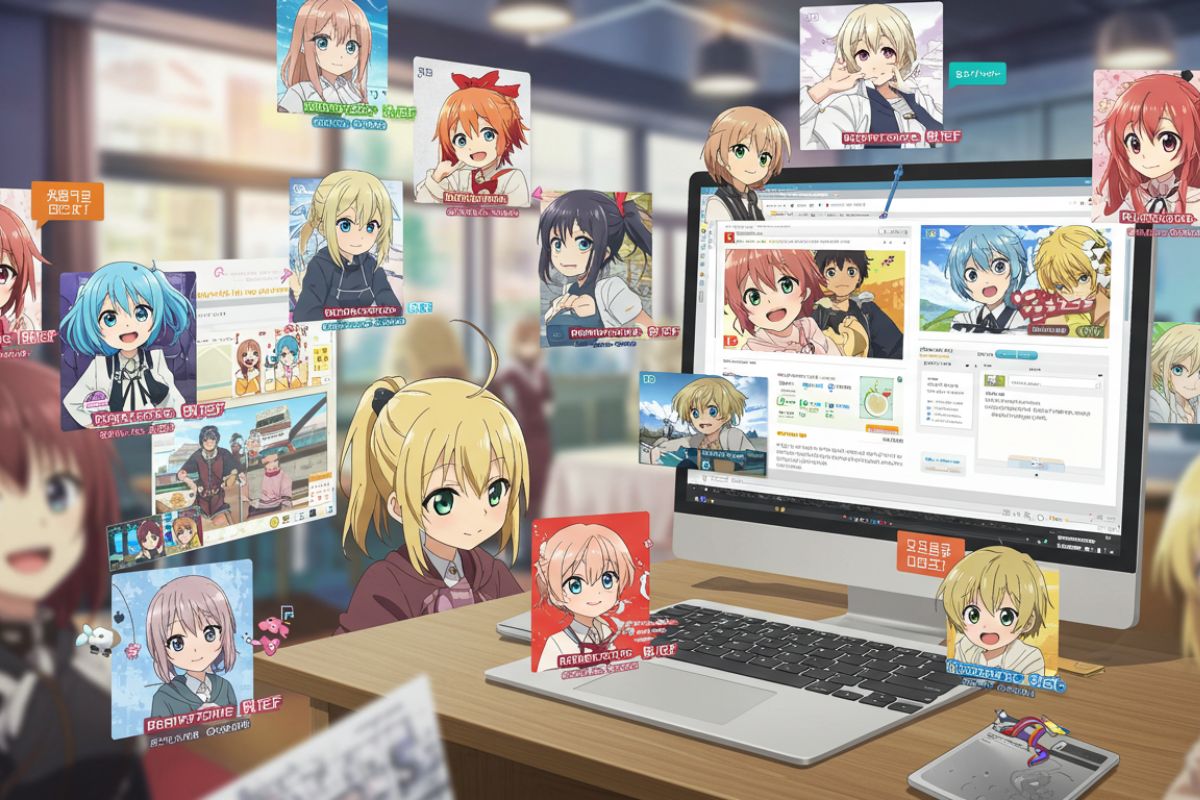nhentai.nef, while not an officially recognized domain like its counterpart nhentai.net, is commonly referenced in fan circles as a symbol or placeholder representing online hubs for fan-made anime content, specifically doujinshi, or self-published manga. These platforms, whether functional or symbolic, have become a major part of anime internet culture, sparking debates, community bonding, and content innovation.
This article explores the broader influence of platforms like nhentai.nef on the online anime community, focusing on its cultural, social, and technological impact.
Doujinshi and Fan Culture: A Foundation
Before diving into the influence of nhentai.nef, it’s important to understand doujinshi, the core type of content circulated on such platforms.
What Is Doujinshi?
-
Doujinshi are self-published manga or novels, often inspired by existing anime, manga, or game characters.
-
While some are original, many are fan interpretations—ranging from parodies to serious reinterpretations.
In Japan and internationally, doujinshi has become a medium for fans to express their creativity and reimagine narratives outside the official canon.
nhentai.nef: Symbol of a Larger Ecosystem
Though “nhentai.nef” itself is not an active site, it is often mentioned in forums, Discord servers, and anime threads as a placeholder or meme-based reference to platforms that host large archives of fan-made manga (including adult-oriented content).
Why It Matters
-
It has come to represent an open-access culture where fans share, translate, and discuss works.
-
It’s commonly used in memes, jokes, and shorthand for doujinshi databases in online anime communities.
-
It serves as a catalyst for conversation around ownership, fan freedom, and content ethics.
This symbolic status helps shape how fan communities view content sharing, creativity, and boundaries in digital fandoms.
Positive Impacts on Online Anime Communities
1. Empowering Translators and Scanlation Groups
Many volunteers use platforms like those referenced by nhentai.nef to translate Japanese doujinshi into multiple languages. This:
-
Increases accessibility for non-Japanese speakers
-
Builds cross-cultural bridges within the global anime community
-
Supports the growth of fan translation as a recognized art form
2. Community Building
From Reddit threads to Discord groups, fan platforms have become gathering places where users:
-
Share recommendations
-
Post reviews and reactions
-
Bond over niche fandoms and subgenres
These spaces have built tight-knit online communities that go beyond content to form lasting social connections.
3. Creative Inspiration
Young artists and writers often use doujinshi as a way to:
-
Learn storytelling techniques
-
Experiment with art styles
-
Publish work without the need for official approval
Platforms like nhentai.nef inspire the next generation of manga artists and writers, many of whom go on to professional careers.
Challenges and Controversies
While the cultural impact is undeniable, platforms like nhentai.nef are not without criticism or concern.
1. Legal and Ethical Issues
Doujinshi often uses copyrighted characters and IPs. While many Japanese creators tolerate this under unspoken fan culture norms, international distribution creates new complexities:
-
Unauthorized distribution of paid content
-
Blurred lines between tribute and theft
-
Conflict with copyright laws in various jurisdictions
2. Exposure to Adult Content
Many doujinshi platforms host explicit material, leading to questions about:
-
Age restrictions and access controls
-
Ethical content moderation
-
Cultural perceptions of adult-themed fan works
This is a particularly relevant concern as the anime audience becomes more global and diverse.
3. Platform Volatility
Sites referenced by names like nhentai.nef often face:
-
Takedowns due to copyright claims
-
Hosting issues related to sensitive content
-
Lack of archiving, causing the loss of rare fan works
This highlights the need for ethical archiving solutions that balance creator rights with fan preservation.
Role of Memes and Internet Language
The term “nhentai.nef” is often used humorously or as internet slang. It’s common to see it referenced in posts like:
“You know it’s getting serious when someone drops a nhentai.nef link.”
“Did you get that doujin from nhentai.nef or the other archive?”
This type of language demonstrates how fan platforms become embedded in online humor, acting as cultural shorthand that connects people across the internet.
Alternatives and Evolving Platforms
As fan communities evolve, newer and more regulated platforms have emerged:
-
Pixiv: A more artist-driven site for both SFW and NSFW content
-
Booth: A digital storefront for doujinshi creators
-
Fanbox: A subscription-based model that supports independent artists
These alternatives show how the landscape is changing from free-for-all databases to more creator-centric platforms, offering income and creative control.
Conclusion: A Lasting Cultural Footprint
nhentai.nef, while not a functioning website, has grown into a symbol of internet anime fandom—a space where fan creativity, digital freedom, and cultural boundaries are constantly being negotiated.
Its influence on online anime communities is both transformative and complex. It empowers fans, fuels creativity, and builds global bridges, but also raises important conversations about ethics, legality, and digital responsibility.
As anime fandom continues to expand, platforms like those represented by nhentai.nef will remain at the heart of discussions on fan expression, content ownership, and the future of online community culture.

